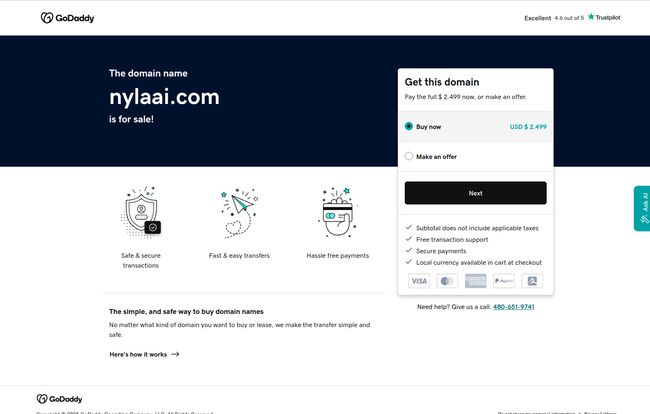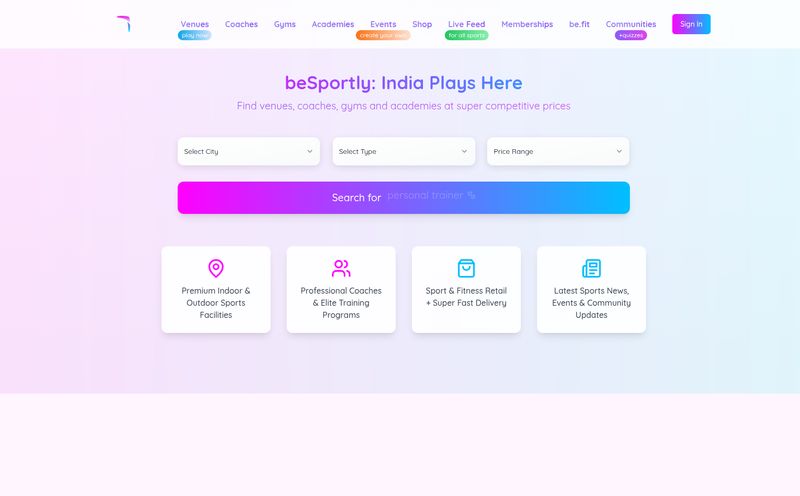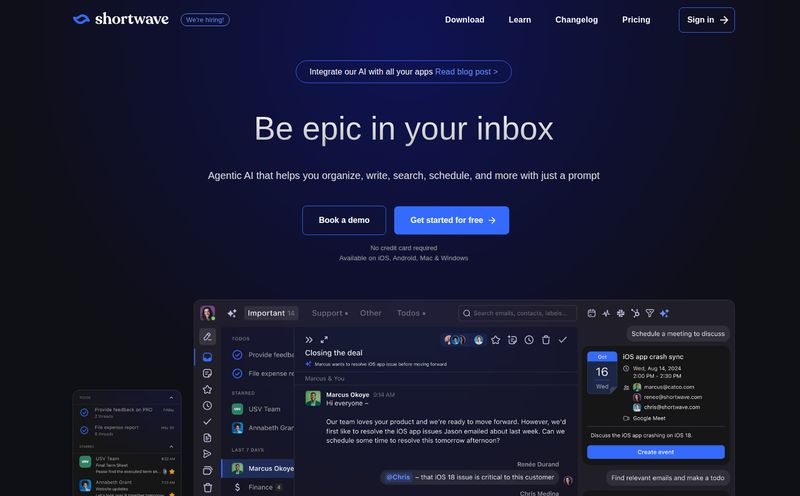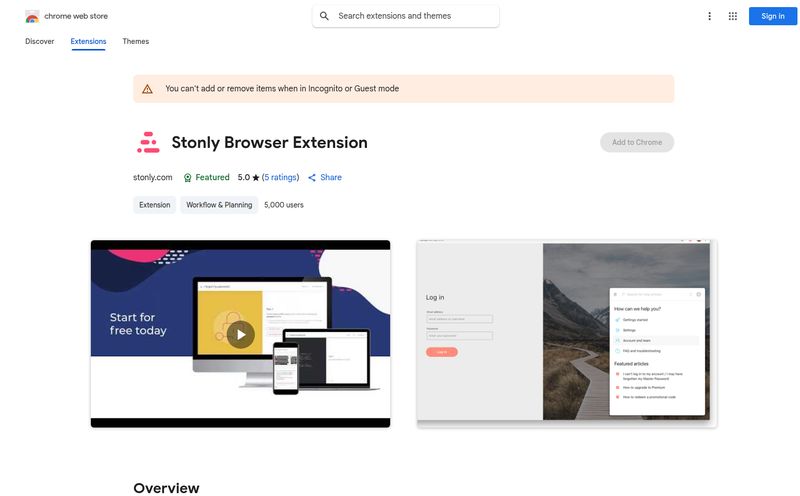I’ve been swimming in the digital marketing and tech world for years now, and if there’s one thing I’ve seen explode, it’s the wellness app. From meditation guides to habit trackers, our phones are overflowing with tools promising a better, calmer you. And now, AI is crashing the party in a big way. Enter NYLA, the “AI Mental Wellbeing Pal.”
The promise is a big one: personalized, evidence-based therapeutic guidance right in your pocket. A friendly ear available 24/7, no judgment, no stigma. It sounds pretty great, right? Almost too good to be true. So, I decided to pull back the curtain on this one. And what I found was… well, it’s a bit of a story.

Visit NYLA
So, What's the Deal with NYLA Anyway?
At its core, NYLA is designed to be a companion. Think of it less like a stuffy, digital therapist and more like a smart, empathetic journal that can actually chat back. The idea is to create a safe space where you can offload your thoughts and feelings—the good, the bad, and the just plain weird—and get some gentle, AI-driven guidance in return. It’s built on the premise of respecting your privacy, which, let’s be honest, is a huge concern for anyone thinking about pouring their heart out to a bunch of code.
The goal isn't to diagnose or treat, but to support your day-to-day emotional wellbeing. We all have those moments, don't we? Stress from a looming deadline, a flicker of social anxiety before a party, or just that vague feeling of being 'off'. NYLA aims to be the first port of call in those situations.
The Core Features That Are Supposed to Make It Shine
Every app has its list of shiny features, and NYLA is no different. But what do they actually mean for you, the user? Let’s break it down without the marketing fluff.
Personalized AI That Learns You
This is the secret sauce, or so the brochure says. NYLA is supposed to move beyond generic, one-size-fits-all advice. By chatting with you, it learns your patterns, your triggers, and what kind of support you respond to. It then offers personalized recommendations rooted in actual, evidence-based therapeutic approaches like Cognitive Behavioral Therapy (CBT). It's a fascinating idea—an AI that gets to know you and tailors its support. A far cry from just getting a random “quote of the day.”
Mental Health Support That's Actually Convenient
This is probably the biggest draw for most people. Finding a therapist is hard. Matching schedules is hard. Getting over the personal hurdle to even make the call can be the hardest part. NYLA removes all of that friction. It’s on your phone, ready whenever you are—whether that's at 3 AM when you can't sleep or during a 5-minute coffee break when you need to decompress. This accessibility is a game-changer, especially for people who might otherwise never seek support. Plus, the anonymity factor is huge. It helps chip away at the stigma that, unfortunately, still hangs around mental health.
The Good, The Bad, and The AI
No tool is perfect, especially not in the incredibly complex world of human emotion. So, let's get real about the pros and the potential pitfalls.
The Upside of a Digital Confidant
The most powerful advantage here is immediacy. When you're spiraling, waiting a week for your next therapy appointment can feel like an eternity. Having an immediate, non-judgmental outlet can be incredibly grounding. The privacy it offers also opens doors for people who are afraid of being seen walking into a therapist's office or just aren't ready to talk to another person. It provides a gentle entry point into self-reflection and emotional awareness. For daily check-ins and managing mild anxiety or stress, a tool like this could be genuinely helpful.
A Necessary Word of Caution
Okay, deep breath. Let’s be crystal clear about something: NYLA is not a substitute for a professional human therapist. It just isn't. An AI, no matter how sophisticated, can’t understand the deep-seated trauma, complex family dynamics, or severe mental health conditions that a trained clinician can. Its effectiveness is entirely dependent on its algorithms and the data its fed. There's a real danger in users leaning on it for issues that are far beyond its capabilities. It's a wellness pal, a support tool—not a crisis line or a clinical psychologist.
The Million-Dollar Question: Pricing and a Bizarre Plot Twist
Naturally, I went looking for the pricing page. Is it a subscription? A one-time purchase? Free with ads? I couldn't find anything. No official website, no app store link that seemed active. A bit strange for a tool getting some buzz.
And then I found it. The domain name, nylaai.com, is up for sale on GoDaddy. For a cool $2,499.
This… changes things. It's like showing up to a restaurant you've heard amazing things about, only to find a 'For Lease' sign in the window. What does this mean? Has the project been abandoned? Did the founders run out of runway? Are they in the middle of a rebrand? It’s a stark reminder of the brutal reality of the tech world. The digital landscape is littered with the ghosts of promising apps that just couldn't make it. It's a real shame, because the concept behind NYLA is a solid one.
So, Who Would Have Benefitted from NYLA?
Assuming it was a fully functioning platform, NYLA would have been perfect for a few types of people. It would be for the person who's 'mental-health-curious' and wants a low-stakes way to engage with their feelings. It would be for the busy professional who needs a quick tool to manage daily work stress. It would be for the student feeling overwhelmed and needing to vent without scheduling an appointment at the university wellness center.
It was never meant for someone in a deep crisis or struggling with severe depression, PTSD, or other serious conditions. And that distinction is everything. Knowing the limits of a tool is just as important as knowing its benefits.
Frequently Asked Questions
- Is NYLA a real therapist?
- No, absolutely not. NYLA is an AI-powered tool designed for mental wellbeing support and emotional check-ins. It is not a replacement for a licensed mental health professional.
- How does NYLA handle user privacy?
- The platform was designed with anonymity and privacy as core tenets. The goal was to create a safe space for users to share freely without fear of judgment or exposure.
- Is NYLA free to use?
- This is unclear. Currently, the primary domain name for the service appears to be for sale, so there is no active pricing model. It's possible it was intended to be a subscription service or a free app.
- What kind of therapeutic methods does it use?
- NYLA's guidance is reportedly based on established, evidence-based practices such as techniques from Cognitive Behavioral Therapy (CBT) to help users reframe their thoughts.
- Can NYLA help in a mental health crisis?
- No. If you are in a crisis, you should contact a crisis hotline or emergency services immediately. AI tools like NYLA are not equipped to handle serious mental health emergencies.
- What happened to the NYLA website?
- As of late 2023, the domain `nylaai.com` is listed for sale on GoDaddy. This suggests the project may be on hold, has been discontinued, or is undergoing a major change.
A Promising Concept with a Question Mark
So where does that leave us with NYLA? We have a fantastic, much-needed concept: an accessible, private, AI-driven friend for your mental wellbeing. The potential is undeniable. But we also have a cautionary tale about the volatility of the tech startup world. An idea is only as good as its execution and its ability to survive.
I’m still optimistic about the future of AI in this space. Tools like what NYLA promised to be can do a lot of good, as long as we use them wisely and with a clear understanding of their limitations. For now, NYLA remains a fascinating idea—a glimpse of what could be, wrapped in the mystery of a 'For Sale' sign.
Reference and Sources
- Domain Listing: nylaai.com on GoDaddy.com
- For a broader view on this topic, check out articles on the role of AI in mental healthcare from sources like the National Institute of Mental Health (NIMH).



